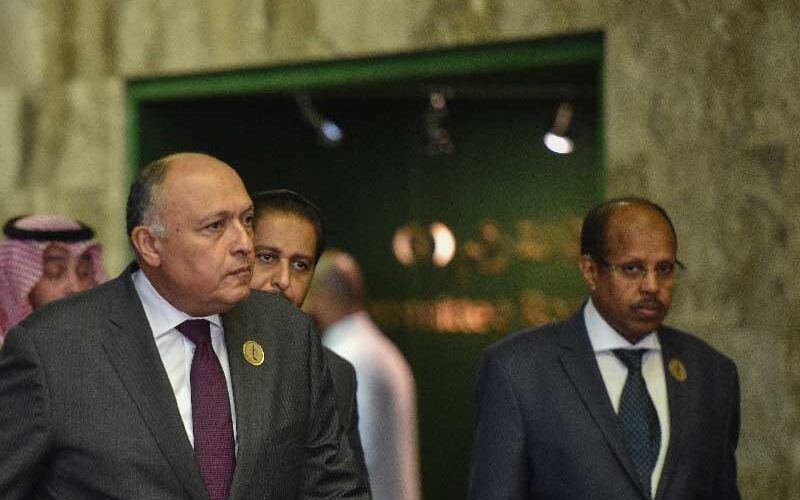Articles
Organized Institutional Cooperation :How The Mechanism Of Political Consultation Affects Egyptian-Gulf Relations
- December 20, 2021
- Posted by: mohamed mabrouk
- Category: Insights

Hassnaa Tammam Kamal
The visit of the Egyptian Minister of Foreign Affairs, Sameh Shoukry, to Riyadh, which took place in preparation for the forty-second Gulf Summit, reflects the high-level coordination and effective communication between Egypt and its partners in the Arabian Gulf.
To ensure that Egyptian-Gulf relations are well established and strong at all levels, the announcement establishes the mechanism of political coordination that will have mechanisms at the level of ministers and senior officials and will be held periodically to discuss all the issues.
By including coordination at the level of the six Gulf States and Egypt, the Mechanism is a method of broad coordination in its scope, structured in its mechanism and institutionalized in its work; to create an effective communication between all the GCC countries and Egypt, and to arrange their various issues such as politics, security and the economical issues.
First: Consultation aspects and features
More problematic issues of the region are recommended to be at the top of the of the consultation mechanism will start to discuss and coordinate, and in this regard, we refer to the most prominent files and the consultation mechanism:
One of the most important issues is how to deal with Iran’s role, whether in settling its Iranian nuclear program, or in limiting how Iran could support armed groups, in Yemen, or Syria, and its support for Hezbollah in Lebanon.
On the other hand, the mechanism could discuss the Gulf -Gulf perspective toward several Arab files, including the relations with the Syrian regime, which was welcomed by UAE and Saudi Qatari reservation. In addition, arrangement the size and extent of Gulf – Israeli relations is highly recommended to be discussed.
Although the mechanism is essentially classified as a political mechanism, it is expected that the economic file will be included, as some economic cases relating to the foreign policy of States. At the forefront of the economic file is the Israeli-United Arab Emirates cooperation in the energy files, which must be taken into account Egyptian interests in the investment of gas. It is also expected that there will be a Gulf approach and economic support for Egypt’s role in reconstruction in Iraq.
About the issues of concern to Egypt, there is no doubt that the volume of Turkish and Russian cooperation will be widely reformulated and discussed, as well as the expectation of support in the most important issue to Egypt, namely water security.
The presence of these files at different levels is primarily aimed at bringing perspectives together and listening to the views and interests of the partners and does not necessarily mean a quick total harmony.
Second: Communication mechanism
the establishment of the mechanism for political consultation will change the format and hierarchy of Egyptian -Gulf coordination and cooperation so that it will not be limited to diplomacy and its instruments of meetings, and contacts so that it will be an institutional diplomat who will go through the issues, includes the pattern and orientation of the issues, the mainstreaming of the general agenda of Egypt and the Gulf States, consultation on the mechanism for the implementation of the political and strategic plans that the two sides will work on, and how to deal with the regional crises and threats.
Finally, although Egyptian-Gulf relations are well known for their depth and strength, the establishment of an institutional mechanism for political consultation would take these relations to a deeper and higher level of coordination. On the other hand, it reiterates this interdependence.
For the political consultation mechanism to be fruitful, it needs an effort to lay the foundations for the functioning of this mechanism and to be consolidated on both the logistics and the location of its meetings, as well as administratively, by determining its officials , the timing of its periodic meetings, and by regulating its political functioning by giving it some degree of authority to ensure its speed of action, to contribute to the creation of an effective tool with the role and mission assigned.
